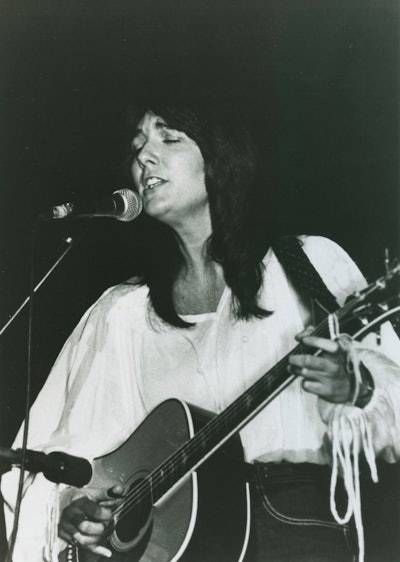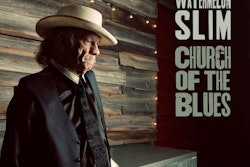This Overdrive Extra blog post is part of “Long Haul Paul” Marhoefer’s “Faces of the Road” series. Find more such Faces via this link.
“Paul, we’ve got a shortage of trucks. I need you to team with Agnes for a couple weeks. She’s over 20 years older than you, so I don’t think there will be any problem.”
“I need to make a phone call,” I answered.
I was handed the phone, told to dial nine to get out, and my wife, Denise, answered. After listening to my predicament, she gave me her blessing, our bank account reeling from weeks of training wages. “Paul, what could possibly happen between you and a woman old enough to be your mother?”
Yeah, that’s it. What could possibly happen?
It was the Spring of 1987. I was a fresh-faced truck-school graduate and trainee for the now defunct “Builders Transport.” Turns out Agnes was a trainee like me, and she was struggling. There were, at that time, two major truck driving schools in greater Indianapolis — the one I attended and that other one. That’s where Agnes got her diploma — that other one. I’m not trying to be a snob here, but it just seemed like our convicted felons were a much better cut of cloth than theirs were.
That other school graduated some real nut jobs. Agnes, for her part, was a nice lady. It’s just that, as she explained, she couldn’t drive in the snow or rain, or major cities, or at night. She was a widow looking for a husband, mostly on the CB. The upshot of this was I got stuck doing most of the driving, while Agnes was doing her best Mae West on channel 19.
As a result of this, our 58-mph Builders Transport truck was frequently flanked by two or three lovelorn truckers who, upon hearing Agnes’ seductive voice cooing through the night, would descend on us like so many hyenas on a hobbled zebra. It was Grannies Gone Wild meets Driving Miss Daisy, and I was becoming an increasingly disgruntled Morgan Freeman.
My tour with Agnes was coming to a close. We were on our last run together before I would get my own truck. We fueled at the New Paris, Ohio, Union 76, and were just shoving off again when a song came on the radio:
Charlie’s got a gold watch.
Don’t seem like a whole lot
After 30 years of driving
Up and down the interstate.
But Charlie’s had a good life
And Charlie’s got a good wife.
After tonight, she’ll no longer be countin’ the days.
“Do you mind if I turn this up?” I asked.
It was a newer singer, Kathy Mattea. Agnes was diggin’ “Eighteen Wheels and a Dozen Roses” as much as I was. We found ourselves singing along to it. There was something about the sardonic observation of a gold watch being all you really will have to show after 30 years of driving that felt like the soundtrack of our fledgling careers. All I had acquired so far as a trucker was an un-serviceable student loan. All Agnes had to show was a litany of ne’er-do-well CB suiters; but Lord have mercy, could that lady truck driver ever sing!
We found ourselves harmonizing to the song, singing it with all our might. It seemed all the annoyance that I had felt towards Agnes melted into a deep admiration.
“Where in the world did you learn to sing like that?” I asked, when the song was over.
“I don’t know. We just always sang back home,” she said. Up until then, I had seen Agnes through the lens of what she couldn’t do; but you never really know someone until you see them in the context of their God-given gift. Something had shifted. I imagined her as a girl singing in a little country church somewhere, unmarred by grief and un-degraded by loneliness. There was an empathy in Mattea’s alto, a power to that song that facilitated this moment of clarity.
We spent the rest of that last leg of the trip scouring the FM dial to find that song again.
Never would it have occurred to me I would one day have the honor of interviewing Kathy Mattea, who has seen her own bumps in the road on her way to facilitating such very moments for millions of fans, as well as receiving eight Grammy nominations and two wins, one for best female Country vocal performance in “Where’ve You Been?”, another for best Gospel Bluegrass Album in “Good News.”
In that glorious decade or so beginning in the mid-80s, now known as the “Progressive Country Scare,” good songs with good lyrics were somehow making their way onto the radio. Ms. Mattea, a former engineering major at West Virginia University who left college for Nashville to seek a career in music, would come to be part of the vanguard of that movement. With an outsider sensibility and a keen knack for championing great songs in the most powerful versions of themselves, she combined elements of folk and bluegrass with traditional country. In short, she was Americana before Americana was cool.
Mattea had approached an old genre, the trucking song, stripped it of its bravado and pretense, and with the help of producer Allen Reynolds wound up with a No. 1 hit.
“I see my job as honoring the song,” she explained to me by phone. The album on which “Eighteen Wheels and a Dozen Roses”, appeared, “Untasted Honey,” was released by Mercury, went Gold, and would include several other hits, including a searing duet with fellow West Virginian singer-songwriter Tim O’Brien in the “The Battle Hymn of Love”.
The Mattea/O’Brien collaboration, which has now off and on spanned three decades, represents some of Mattea’s best work. In addition to his powers as a singer, O’Brien’s own compositions, “Untold Stories” and “Walk the Way the Wind Blows,” became two of her most powerful songs. What struck me in speaking with Kathy Mattea wasn’t so much the heights she has attained but the quality of the longstanding relationships she enjoys with fellow musicians. Her latest record, “Pretty Bird,” was produced by O’Brien, a maven of multiple genres in his own right. It’s is a portrait of understated elegance. Mattea’s first project in six years, its eclectic collection of songs chronicles the reclaiming of a beloved American voice — one, in fact, she thought she had lost for good.
 Kathy Mattea in an early publicity shot, circa early 1980s.
Kathy Mattea in an early publicity shot, circa early 1980s.It was four years ago when Minnesota-based voice coach Judi Vinar received a voicemail from a woman who was sobbing. She heard she gave lessons via Skype. She identified herself only as Kathy.
This wasn’t the first time her voice had crashed. Kathy explained to me that when her career had reached a certain point, her mom told her she had changed, and practically disowned her. “I realize now, she was afraid I wouldn’t need her anymore,” she says. The music “took her role away.”
As the relational strain increased, Kathy dealt with it by burying herself in work. There was hardly a gig she would turn down. She no longer slept. She quit taking care of herself. “One night I came in for a high note, and it sounded like Joe Cocker.” Her voice had to be repaired surgically. “I said I would never do that to myself again.”
This time, though, was different. Now there were all kinds of high notes she could no longer make, entire songs from her repertoire she could no longer sing. She began to contemplate how she might make a living outside of music. In those Skype sessions, Vinar helped Kathy to see that her range had merely shifted over time. The sweet spot in her voice had lowered. The tracks on “Pretty Bird” represent a new range of songs she discovered she could now make her own. One of my favorites is Kathy’s rendition of “Mercy Now,” written by Mary Gauthier. Speaking of honoring the song, it took nearly a year’s worth of Thursday night jam sessions with Bill Cooley before the veteran guitarist, with whom Mattea has also collaborated for decades, would give it his seal of approval.
For some reason, she recollected, “I couldn’t let go” and just let the song do the work. “I was too strained.” Then one night she just cried “uncle. I give up.” She just sang.
For Mary Gauthier, being covered by Kathy Mattea is a really big deal. “Kathy singing ‘Mercy Now,’ especially now, in these dark times,” she told me by email, “is a dream come true for me. I have loved her music for 40 years. She is a light in the darkness. Always has been.”
Other gems in this new collection of songs include “This Love Will Carry,” by Scottish folkie Dougie MacLean. There is gorgeously weathered conviction in Mattea’s voice as she sings, “It’s a thin line that leads us, and keeps us all from shame.” There’s a new richness and sonority in that alto that really sells the song, even to this cynical old gearjammer.
The title track is an a capella composition by Hazel Dickens — written and now sung and produced, all by West Virginians, every one of whom had to leave that musical melting pot to be heard elsewhere. It has that hauntingly rare and beautiful quality of which Mattea is a master — space between sounds, a la “Where’ve You Been?” I can’t listen to it without recalling the words of Leonard Cohen, “Ring the bells that still can ring. Forget your perfect offering. There are cracks, there are cracks in everything. That’s how the light gets in.”
Kathy Mattea indeed is a light.
In the end, we all become characters in a Kathy Mattea song. In three years, if I can tough it out, I will literally receive a gold watch at my own trucking job. Agnes, after a few days of running solo, abandoned her truck in Texas and ran off with a bull hauler in a fire engine red Peterbilt, like Eddie and that bassman’s wife. Kathy Mattea and her mom eventually reconnected, and in those last months of her life, while suffering from dementia, she began to sing her daughter’s songs throughout the house. Kathy had never heard her mother sing openly before. She had been asked early in life by a former husband, a high school music teacher, to do him a favor and never sing again. It had left a mark. Now, she had forgotten she wasn’t supposed to sing. For the first time in her life, Kathy and her mom got to sing together. They spent her final days on earth doing just that. Remind you of anything?
So glad you’re back, Kathy. We’re just not ourselves when you’re away.
“Pretty Bird” can be found via this link to Mattea’s website.










